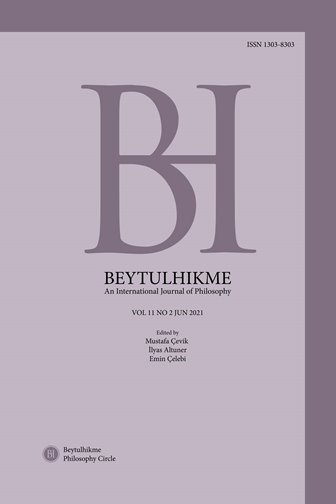Author :
Abstract
Aristoteles mantığında yer alan kategorik önermelerin doğruluk değerinin nasıl belirleneceğini tartışacağımız bu yazıdaki odak noktamız kategorik önermelerdeki varlıksal varsayımdır. Bir önermenin doğruluğu, özne sınıfının üyelerinin varlığına inanmayı gerektiriyorsa, bu önermenin varlıksal varsayımı olduğu kabul edilir. Geleneksel mantıkta önermenin dile getirdiği durumun gerçeklikteki karşılığının önermede yer alan terimlerin mevcudiyeti ile ilişkili olması, hangi önermelerin doğru olmak için varlıksal varsayıma ihtiyaç duyduğu sorusunu gündeme getirmektedir. Aristoteles mantığındaki varlıksal varsayım iki konuda ciddi eleştiriye maruz kalmıştır: (i) Gönderimi olmayan terimlerin önermenin öznesi olduğu durumda önermelerin doğruluk değeri nasıl belirlenecektir? (ii) Karşıolum karesindeki kategorik önermelerin birbirleri ile olan çelişiklik durumu güvenilir midir? Biz bu iki hususu dikkate alarak, varlıksal varsayım içeren kategorik önermelerin Aristoteles mantığında tutarsızlığa sebep olup olmadığını inceleyeceğiz.
Keywords
Abstract
We will discuss how to determine the truth value of categorical propositions in Aristotelian logic, where, our focus is on the existential import in categorical propositions in this article. A proposition is accepted to have existential import, provided that the truth of this proposition requires a belief in the existence of members of the subject class. The fact that, the correspondence of the proposition, in reality, is related to the existence of terms in the proposition raises the question of which propositions need an existential assumption to be true in traditional logic. The existential import in Aristotelian logic has been severely criticized on two issues: (i) How to determine the truth value of propositions when non-referential terms are the subject of the proposition? (ii) Is the contradiction between the categorical propositions partaking the square of opposition reliable? By considering these two questions, we will examine whether categorical propositions containing existential import cause inconsistency or not in Aristotelian logic.
Keywords
- Aristotle (1960). Posterior Analytics & Topica. (Trans. H. Tredennick & E. S. Forster). Cambridge: Harvard University Press.
- Aristotle (1963). Aristotle’s Categories and De Interpretatione. (Trans. J. L. Ackrill). Oxford: Clarendon Press.
- Aristotle (2009). Prior Analytics Book I. (Trans. G. Striker). Oxford: Clarendon Press.
- Bäck, A. (2000). Aristotle's Theory of Predication. Leiden: Brill.
- Geach, P. (1950). Subject and Predicate. Mind, 59, 461-482.
- Jacobs, W. (1979). Aristotle and Nonreferring Subjects. Phronesis, 24, 282-300.
- Lukasiewicz, J. (1957). Aristotle’s Syllogistic. Oxford: Clarendon Press.
- Mignucci, M. (2007). Aristotle on the Existential Import of Propositions. Phronesis, 52 (2), 121-138. Öz: Aristoteles mantığında yer alan kategorik önermelerin doğruluk değerinin nasıl belirleneceğini tartışacağımız bu yazıdaki odak noktamız kategorik önermelerdeki varlıksal varsayımdır. Bir önermenin doğruluğu, özne sınıfının üyelerinin varlığına inanmayı gerektiriyorsa, bu önermenin varlıksal varsayımı olduğu kabul edilir. Geleneksel mantıkta önermenin dile getirdiği durumun gerçeklikteki karşılığının önermede yer alan terimlerin mevcudiyeti ile ilişkili olması, hangi önermelerin doğru olmak için varlıksal varsayıma ihtiyaç duyduğu sorusunu gündeme getirmektedir. Aristoteles mantığındaki varlıksal varsayım iki konuda ciddi eleştiriye maruz kalmıştır: (i) Gönderimi olmayan terimlerin önermenin öznesi olduğu durumda önermelerin doğruluk değeri nasıl belirlenecektir? (ii) Karşıo- lum karesindeki kategorik önermelerin birbirleri ile olan çelişiklik durumu güvenilir midir? Biz bu iki hususu dikkate alarak, varlıksal varsayım içeren kategorik önermelerin Aristoteles mantığında tutarsızlığa sebep olup olmadığını inceleyeceğiz. Anahtar Kelimeler: Varlıksal varsayma, geleneksel mantık, kategorik önermeler, gönderimi olmayan terimler, Aristoteles.





